
-
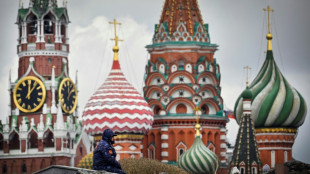 US envoy to visit Moscow as US pushes for ceasefire
US envoy to visit Moscow as US pushes for ceasefire
-
At least 24 killed in Kashmir attack on tourists: Indian police source

-
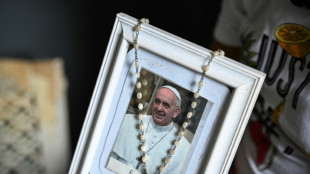 Philippine typhoon victims remember day Pope Francis brought hope
Philippine typhoon victims remember day Pope Francis brought hope
-
IMF slashes global growth outlook on impact of Trump tariffs
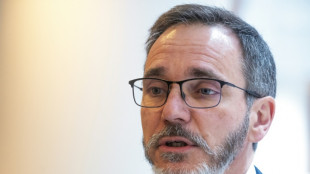
-
 BASF exits Xinjiang ventures after Uyghur abuse reports
BASF exits Xinjiang ventures after Uyghur abuse reports
-
Nordics, Lithuania plan joint purchase of combat vehicles
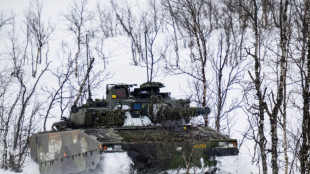
-
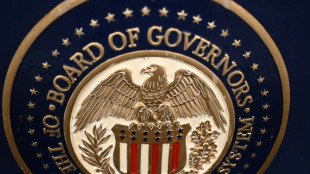 Gold hits record, stocks diverge as Trump fuels Fed fears
Gold hits record, stocks diverge as Trump fuels Fed fears
-
World could boost growth by reducing trade doubt: IMF chief economist
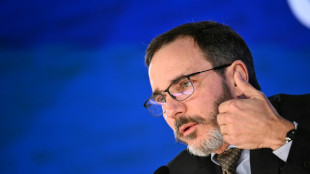
-
 IMF slashes global growth outlook on impact of US tariffs
IMF slashes global growth outlook on impact of US tariffs
-
IMF slashes China growth forecasts as trade war deepens
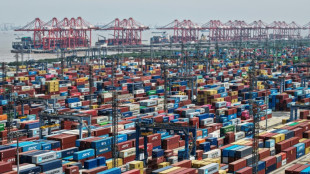
-
 Skipper Shanto leads Bangladesh fightback in Zimbabwe Test
Skipper Shanto leads Bangladesh fightback in Zimbabwe Test
-
US VP Vance says 'progress' in India trade talks

-
 Ex-England star Youngs to retire from rugby
Ex-England star Youngs to retire from rugby
-
Black Ferns star Woodman-Wickliffe returning for World Cup

-
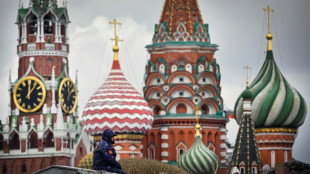 Kremlin warns against rushing Ukraine talks
Kremlin warns against rushing Ukraine talks
-
Mbappe aiming for Copa del Rey final return: Ancelotti
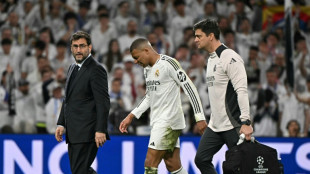
-
 US universities issue letter condemning Trump's 'political interference'
US universities issue letter condemning Trump's 'political interference'
-
Pope Francis's unfulfilled wish: declaring PNG's first saint

-
 Myanmar rebels prepare to hand key city back to junta, China says
Myanmar rebels prepare to hand key city back to junta, China says
-
Hamas team heads to Cairo for Gaza talks as Israel strikes kill 26
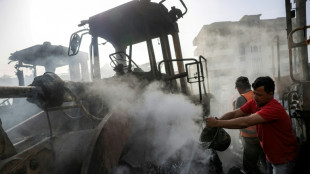
-
 Pianist to perform London musical marathon
Pianist to perform London musical marathon
-
India's Bumrah, Mandhana win top Wisden cricket awards

-
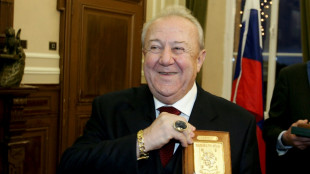 Zurab Tsereteli, whose monumental works won over Russian elites, dies aged 91
Zurab Tsereteli, whose monumental works won over Russian elites, dies aged 91
-
Roche says will invest $50 bn in US, as tariff war uncertainty swells
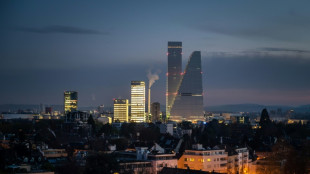
-
 Pope Francis's funeral set for Saturday, world leaders expected
Pope Francis's funeral set for Saturday, world leaders expected
-
US official asserts Trump's agenda in tariff-hit Southeast Asia
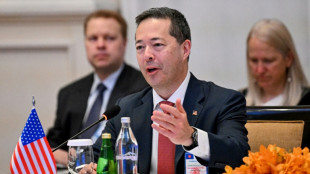
-
 World leaders set to attend Francis's funeral as cardinals gather
World leaders set to attend Francis's funeral as cardinals gather
-
Gold hits record, stocks mixed as Trump fuels Fed fears
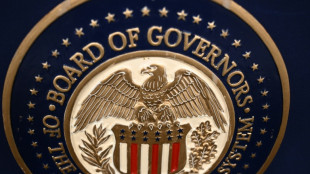
-
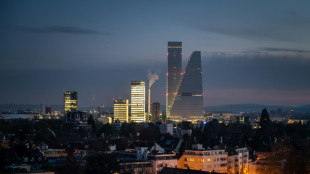 Roche says will invest $50 bn in US over next five years
Roche says will invest $50 bn in US over next five years
-
Fleeing Pakistan, Afghans rebuild from nothing
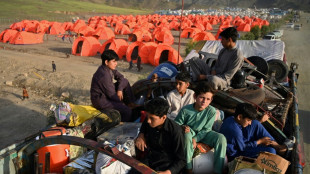
-
 US Supreme Court to hear case against LGBTQ books in schools
US Supreme Court to hear case against LGBTQ books in schools
-
Pistons snap NBA playoff skid, vintage Leonard leads Clippers

-
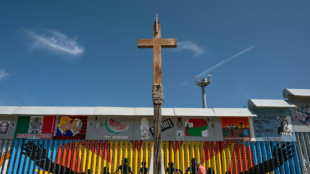 Migrants mourn pope who fought for their rights
Migrants mourn pope who fought for their rights
-
Duplantis kicks off Diamond League amid Johnson-led changing landscape

-
 Taliban change tune towards Afghan heritage sites
Taliban change tune towards Afghan heritage sites
-
Kosovo's 'hidden Catholics' baptised as Pope Francis mourned

-
 Global warming is a security threat and armies must adapt: experts
Global warming is a security threat and armies must adapt: experts
-
Can Europe's richest family turn Paris into a city of football rivals?
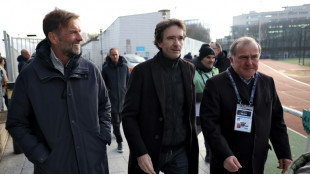
-
 Climate campaigners praise a cool pope
Climate campaigners praise a cool pope
-
As world mourns, cardinals prepare pope's funeral
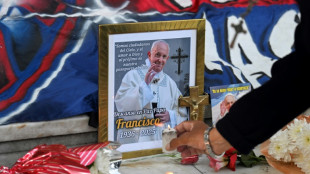
-
 US to impose new duties on solar imports from Southeast Asia
US to impose new duties on solar imports from Southeast Asia
-
Draft NZ law seeks 'biological' definition of man, woman
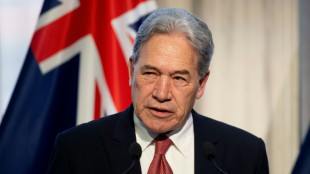
-
 Auto Shanghai to showcase electric competition at sector's new frontier
Auto Shanghai to showcase electric competition at sector's new frontier
-
Tentative tree planting 'decades overdue' in sweltering Athens

-
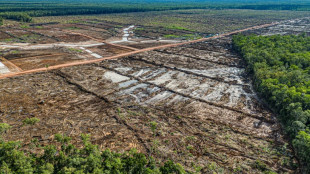 Indonesia food plan risks 'world's largest' deforestation
Indonesia food plan risks 'world's largest' deforestation
-
Gold hits record, stocks slip as Trump fuels Fed fears
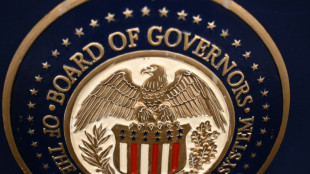
-
 Trump helps enflame anti-LGBTQ feeling from Hungary to Romania
Trump helps enflame anti-LGBTQ feeling from Hungary to Romania
-
Woe is the pinata, a casualty of Trump trade war

-
 'Like orphans': Argentina mourns loss of papal son
'Like orphans': Argentina mourns loss of papal son
-
Trump tariffs torch chances of meeting with China's Xi


World could boost growth by reducing trade doubt: IMF chief economist
Policymakers should find a way to reduce the uncertainty over trade policy kicked up by Donald Trump's tariff plans in order to boost global growth, the International Monetary Fund's chief economist said in an interview.
"The uncertainty in trade policy, and in policy generally right now, is a big drag on global activity," Pierre-Olivier Gourinchas told AFP ahead of Tuesday's publication of the IMF World Economic Outlook report.
"And the sooner we can lift it, the better off everyone will be," he said, adding: "Bringing back stability, clarity, predictability to the trading system is the first order of business."
In the updated outlook published as global financial leaders gather for the World Bank and IMF Spring Meetings in Washington, the Fund sees global growth cooling to 2.8 percent this year, a 0.5 percentage-point cut from its last forecast in January.
Global growth is then forecast to hit 3.0 percent in 2026, a 0.3 percentage-point markdown from January.
- 'Delay easing monetary policy' -
The IMF now expects 3.0 percent inflation this year, effectively stalling progress towards the US Federal Reserve's two percent long-term inflation target.
Higher inflation "will, of course, have implications for what the central bank will need to be doing," Gourinchas said.
If inflation developments prove to be persistent, the Fed "may have to delay easing monetary policy, or they may even have to start looking to increase and tighten the monetary policy rate," he added.
The impact of tariffs is also "quite significant" for China, Gourinchas said, adding that the IMF expects the levies to constrain growth by around 1.3 percentage points, counteracted somewhat by the fiscal measures Beijing introduced to prop up the economy last year.
As a result, the IMF has trimmed China's growth forecast by 0.6 percentage points, and now sees growth of just 4.0 percent this year, down sharply from the 5.0 percent growth seen in 2024.
- More modest Europe downgrade -
Europe is "slightly less" exposed to tariffs than the United States or China, and as such the tariff shock should be a little less pronounced, Gourinchas said.
The increased European defense spending announced in recent months should also provide "some fiscal support to economic activity in the European Union," he added, while warning that any additional spending would still need to be paid for over the longer term.
"We need to have targeted measures, temporary measures, that are sunsetting automatically," he said.
"When it comes to the permanent increases in defense... it has to be financed out of expenditure cuts somewhere else or new revenues," he added. "It cannot be financed by debt."
- Risk of social unrest -
The IMF warned in its report of an increased risk of social unrest due to several factors, including "dim medium-term growth prospects."
For low-income countries, a funding squeeze combined with the effects of less foreign aid funding from the likes of the United States, could be a recipe for challenges ahead.
"There may be sectoral dislocations, and maybe sectors of activities that are hit pretty hard by the tariffs, if they remain in place," Gourinchas said. "And there will be calls for support so that these sectors, households and businesses can adapt and adjust."
"Some countries have very limited fiscal space to start with," he added. "And so in the context in which there will be these additional demands, if they are unable to meet them, then that's when you could see social tensions increasing."
J.Sauter--VB
